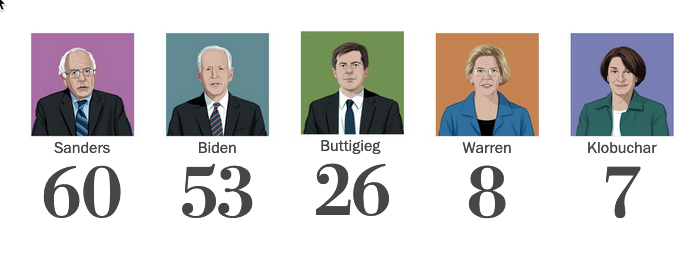To become the Democratic Party’s nominee, a candidate needs to win 1,991 of the party’s delegates. Here’s how that happens.
Democrats divide their 3,979 pledged delegates among the states, the District of Columbia, territories and other jurisdictions without electoral votes. That is based on a formula that takes into account both population and the Democratic Party’s strength in particular jurisdictions. (While Massachusetts and Tennessee have similar populations and 11 votes each in the electoral college, more people vote for Democrats in the former than the latter, so Massachusetts has 91 pledged delegates and Tennessee has 64.)
[Listen: The delegate math questions you were too embarrassed to ask]
Those delegates are then pledged to candidates on the basis of results in primaries and caucuses.




